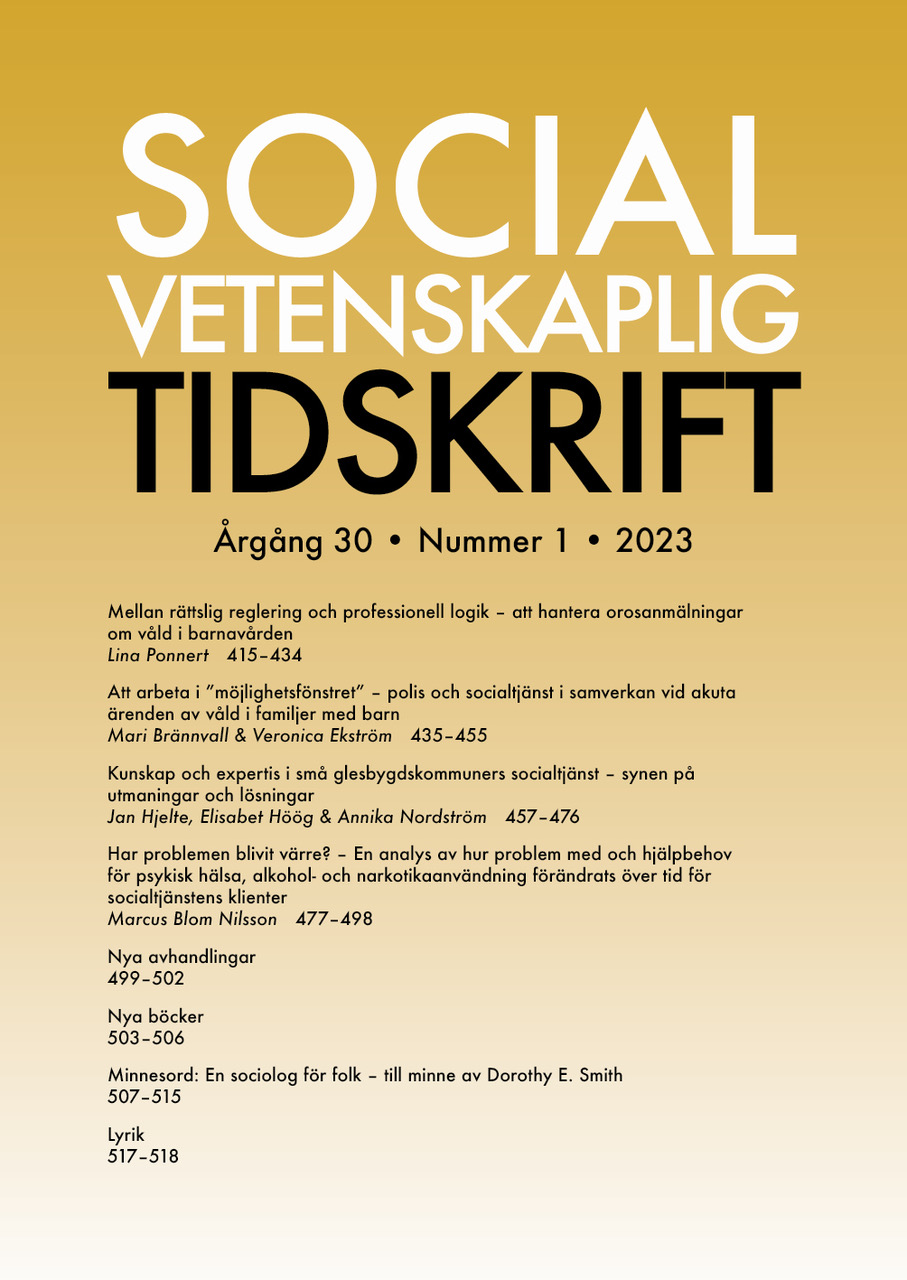Unity for quality – Collaboration for skills supply in small sparsely populated municipalities social services
– synen på utmaningar och lösningar
DOI:
https://doi.org/10.3384/SVT.2023.30.1.4116Keywords:
rural social services, challenges, knowledge and expertise, collaborative solutions, digital solutionsAbstract
Skills supply is a major challenge for social services in sparsely populated municipalities in Sweden. This affects their ability to fulfil their welfare mission to offer a good quality social service. This article reports and problematizes how the social services in eight sparsely populated municipalities view the possibilities of dealing with the challenges of completing that task. The data collection had an action-oriented approach, where different activities and data collection (mainly documentation) took place in parallel.
The results show that skills supply is a prioritized challenge. First, since social workers were generalists rather than specialists, which is the case in many larger and more densely populated areas, it was difficult to build up specialist knowledge in defined areas in the social services. Second, it was difficult to maintain skills in practice because in certain parts of the social services' area of responsibility, cases were brought up relatively rarely (“rare cases”). Therefore, there were limited opportunities to be able to develop skills in practice.
Digitization was seen as a potential solution, for example through web-based education and guidance to obtain updated knowledge and to gain access to expertise. A further potential solution was collaboration between the municipalities, where one or a couple of municipalities could be given responsibility for all municipality’s affairs in one area of rare cases. This was assumed to contribute to increased opportunities to develop skills in the area of responsibility concerned. An overall interpretation is that the sparsely populated area context contributes to the social services having partly different challenges in terms of competence and expertise than the social services in larger and more densely populated areas. Therefore, the possible solutions are also different.
Downloads
Published
How to Cite
Issue
Section
License
Copyright (c) 2023 Jan Hjelte, Elisabet Höög, Annika Nordström

This work is licensed under a Creative Commons Attribution 4.0 International License.
Allt material i Socialvetenskaplig tidskrift publiceras sedan 2022 (Vol 28 Nr 2) med omedelbar öppen tillgång (open access), under Creative Commons-licensen CC BY 4.0. Upphovsrätten till innehållet tillhör respektive författare.
Allt innehåll i tidskriften är fritt tillgängligt utan kostnad och får fritt läsas, laddas ned, kopieras, delas, skrivas ut och länkas. När innehållet används måste författare, källa och licens anges. Författaren kan fritt göra sin publicerade text tillgänglig på institutionella och internetbaserade arkiv, exempelvis sitt lärosätes digitala arkiv eller andra tjänster för detta.
Inga publiceringsavgifter tas ut vid publicering i Socialvetenskaplig tidskrift.


